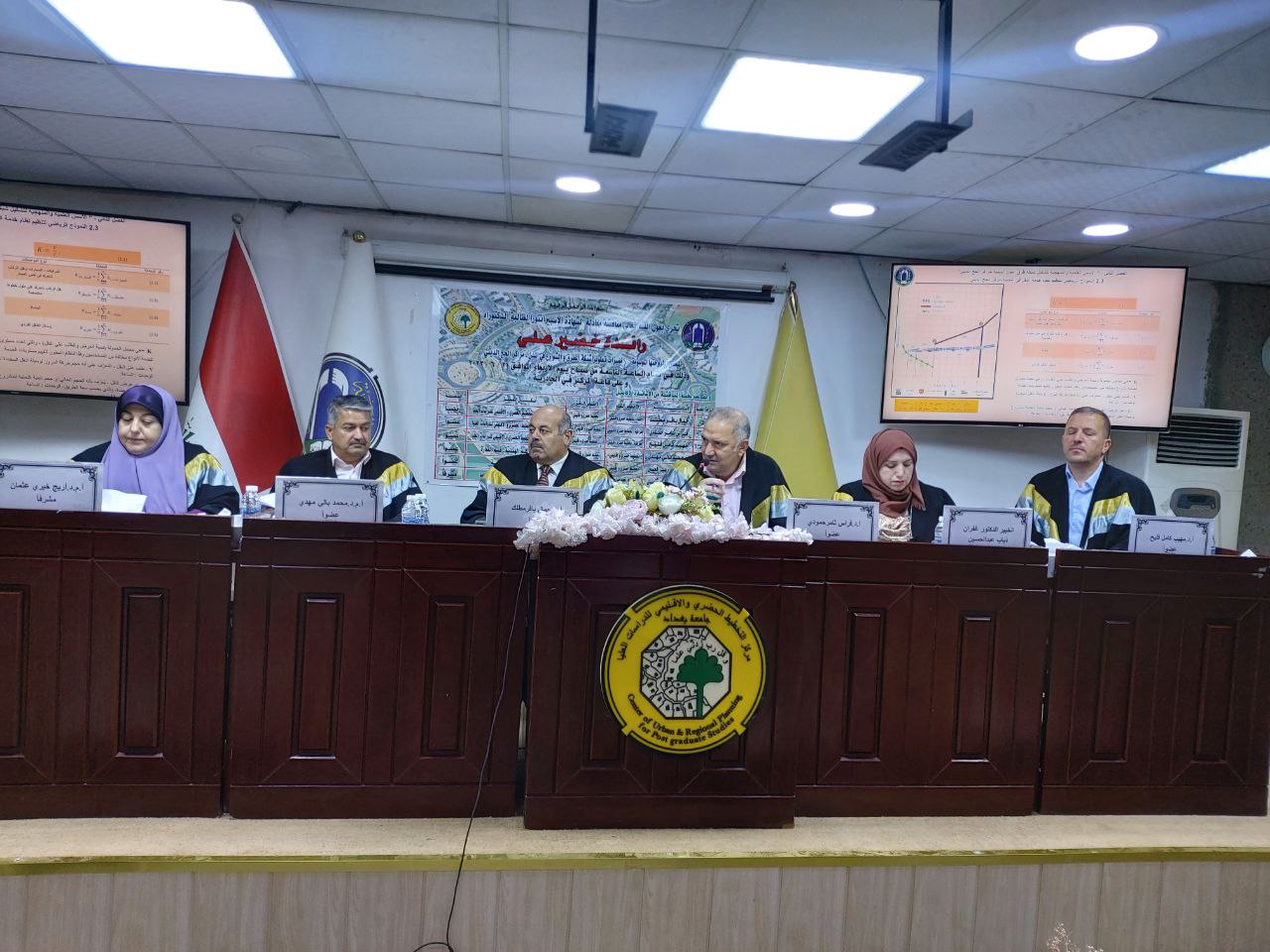The Center of Urban and Regional for Postgraduate Studies at the University of Baghdad witnessed a discussion of the Ph.D. Equivalency Certificate (Espirantura) and tagged ((Advantages of developing the road and street network in cities – centers of religious pilgrimage)) for PhD student Raeda Khudair Ali, and under the supervision of the teaching assistant at the center, Dr. Areej Khairy Al-Rawi.
The researcher discussed the problems of the religious and cultural centers in the cities, which is represented in the emergence of additional traffic pressure on the road network during the days of the influx of visitors to perform the rituals of the visit, which must be taken into account when developing transportation planning documents for cities with a religious function.
The thesis aimed to study recent trends in the development of the road network according to the specifics of the historical development of the city as a center for religious pilgrimage (religious visitation), and to define the features of the development of the street and road network from cities to centers of religious pilgrimage, as well as to create and organize a mathematical model that describes the effect of demand on transportation on normal days and days religious holidays and visits, in addition to preparing and developing a theoretical approach to organizing the work of the streets and roads network in the city with testing theoretical rulings such as the holy city of Karbala.
Accordingly, the thesis concluded that the centers of religious pilgrimage (cities of religious visitation such as Karbala) possess important features for organizing the work of a road network on regular weekdays and on the days and periods of religious holidays that require them to develop sustainable cities, after estimating the ratio of supply and demand for transportation to calculate the required quantity Infrastructure to ensure a planned movement structure on normal weekdays and on days and periods of holidays and religious visits.
